- Category
- War in Ukraine
How Ukraine’s Religious Leaders Are Defending Their Homeland with Faith and Firearms
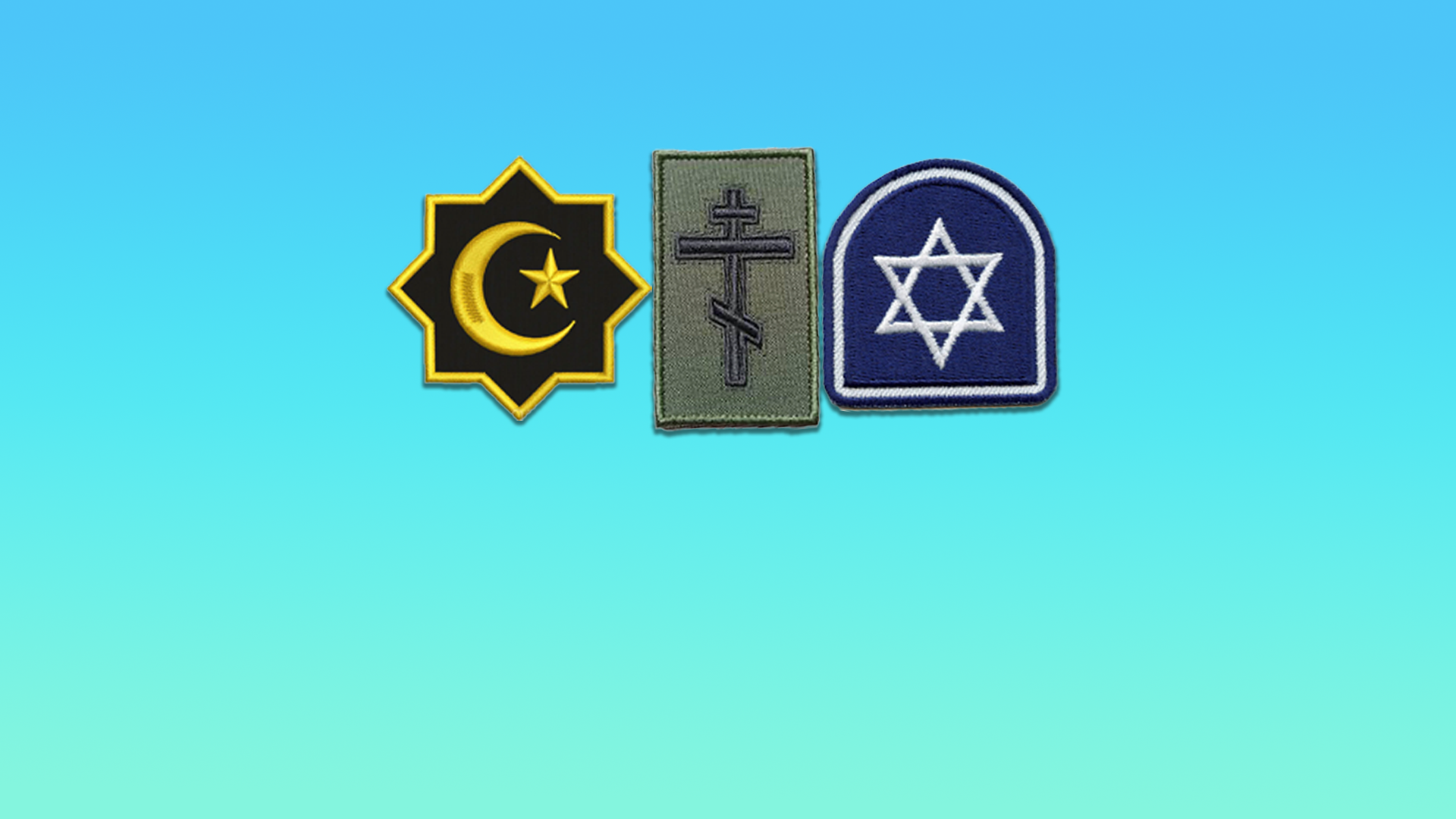
Ukraine, a nation of diverse faiths where the constitution has always protected the freedom of religion, now sees its religious leaders on the battlefield, defending that very constitution and our freedom.
When we hear about religious figures, we usually imagine people who are ready to provide emotional support and spiritual guidance. While this remains true in Ukraine, the ongoing war has led many religious leaders to blend their spiritual practices with active roles in combat and volunteering to defend the country.
Ukraine’s religious space, although dominated by Orthodox Christianity, encompasses many other religions, including Catholicism, Judaism, and Islam.
Here are some of their stories.
Said Ismagilov, former Mufti of the Religious Administration of Muslims of Ukraine
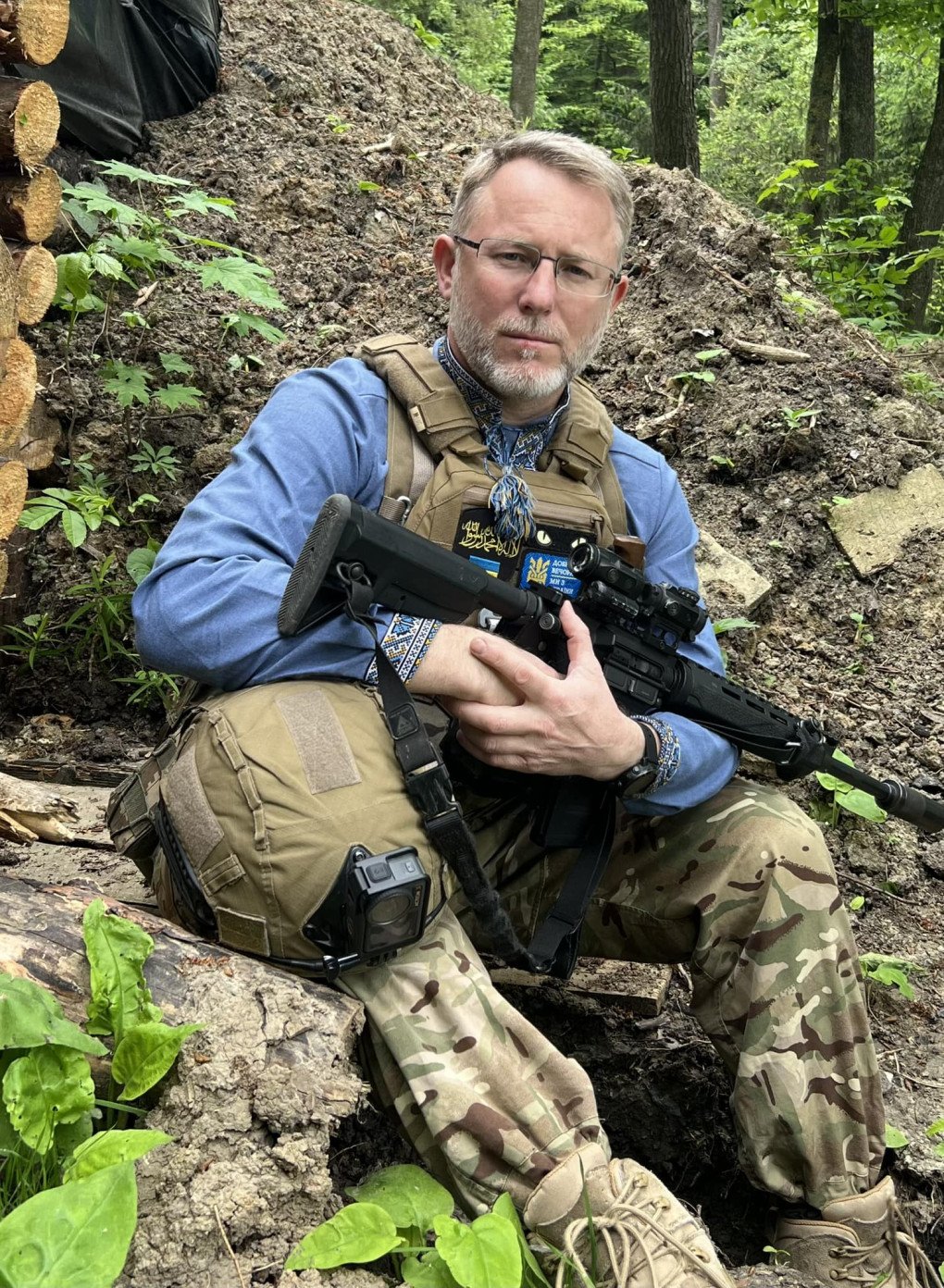
One of the well-known religious Islamic figures in Ukraine is the former Mufti of the Religious Administration of Muslims of Ukraine “Ummah”, one of the Muslim spiritual leaders of Ukraine, Said Ismagilov. Currently, he is serving as a commander of the management platoon in the Anti-Air Defense Forces of the Armed Forces of Ukraine.
At the beginning of Russia’s full-scale invasion of Ukraine, he resigned from his religious career, being a Mufti for 13 years, and joined the Territorial Defense Forces, then went to the frontline to serve as a driver and paramedic of the “Hospitaliers” battalion.
“I believe that God chose me to save people’s lives. When I was a Mufti, I tried to save people’s spiritual future. Here you have to work on a slightly different level, although also on a spiritual level,” said Ismagilov.
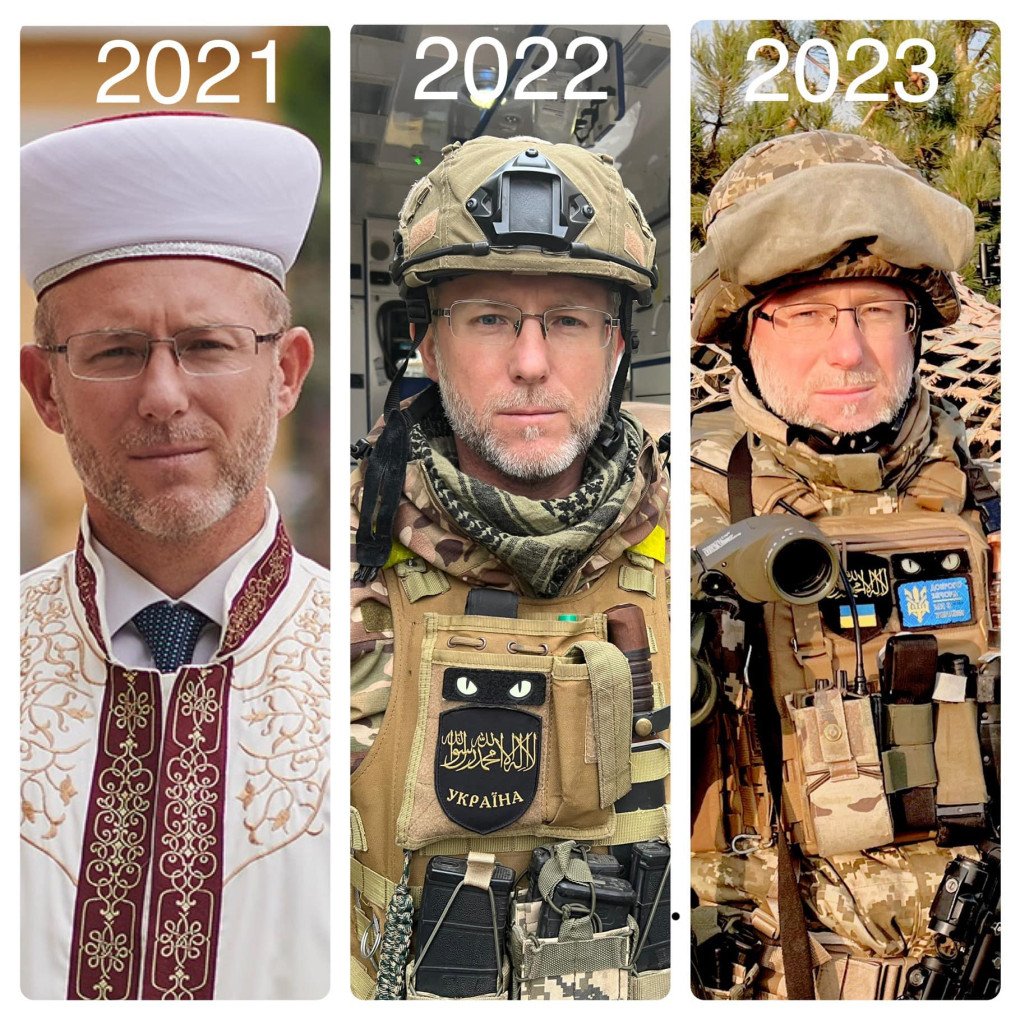
Said Ismagilov was born in Donetsk and was forced to leave the city in September 2014 following Russian occupation. He was warned by Oleksandr Khomchenko, a pastor from a Donetsk Protestant church, to flee due to threats from pro-Russian militants.
Khomchenko, who was himself imprisoned and tortured by Russian occupying forces, died at 59 from health complications related to the torture and illegal imprisonment.
Russia’s spreading invasion followed Said Ismagilov to the Kyiv region, when Bucha, his new hometown was occupied once again, and his house looted.
“It got robbed. The occupiers stationed there, in our residential complex, where I lived before the war, they put their military equipment there,” he said.
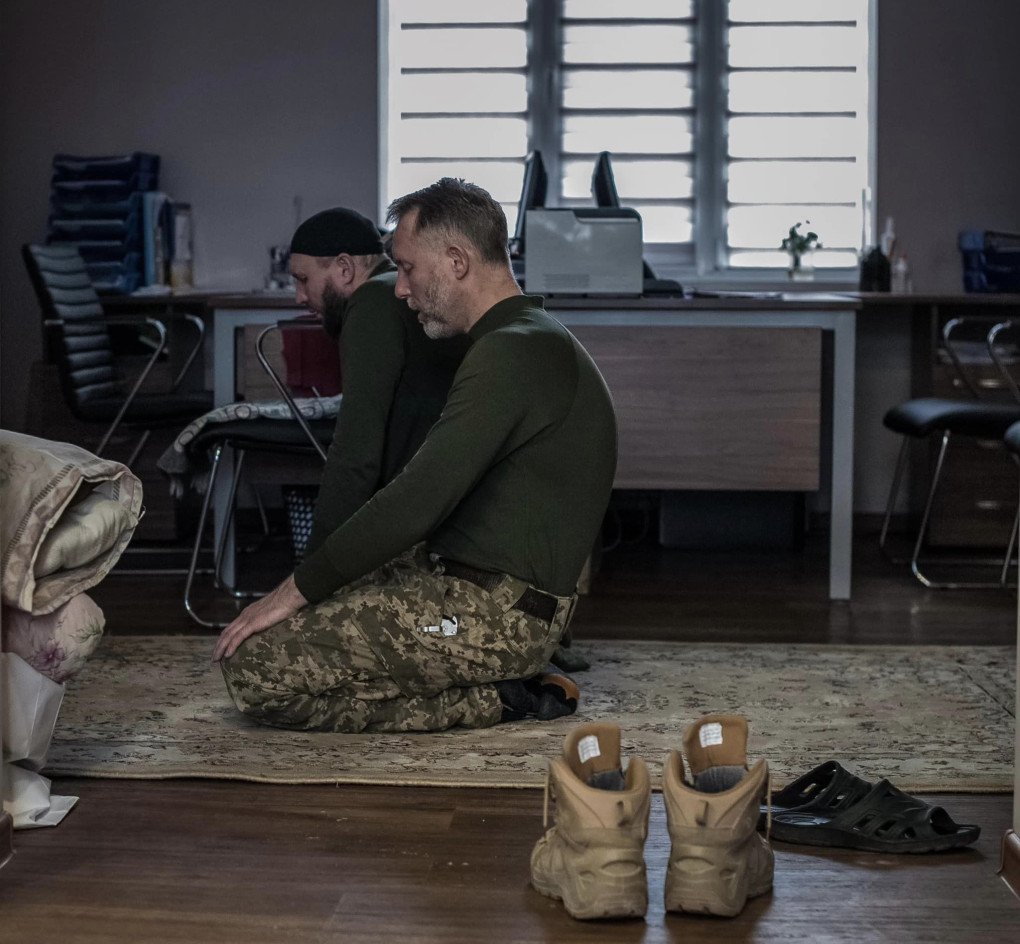
In the first months after Russia’s full-scale invasion, Said helped evacuate people and animals in the Kyiv region.
On April 5, he was already on the frontline in Lysychansk, Luhansk region, where he worked on the first line of the evacuation, the most dangerous area where the battles took place.
Now he guards the Ukrainian sky, serving as a platoon commander of one of the air defense battalions. His duties include managing air defense equipment and soldiers.
When asked about how long is he ready to serve, Ismagilov says: “Until victory.”
Moshe Reuven Azman, the Chief Rabbi of Ukraine
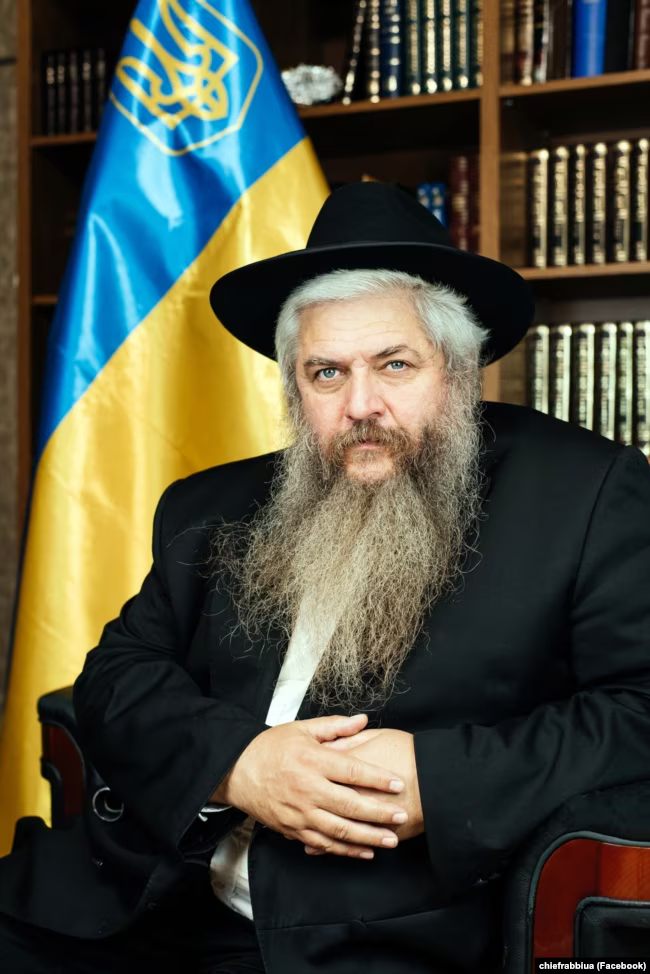
Moshe Azman is the Chief Rabbi of Ukraine and leads the All-Ukrainian Congress of Hasidic Communities. He has been actively involved in bringing international humanitarian aid to Ukraine.
Born in Saint Petersburg, Russia, and later living in Israel, Azman never thought he would end up in Ukraine, despite his long-standing anti-Soviet stance.
“I was born in Leningrad and was already anti-Soviet from a young age. The KGB even summoned me for questioning. It wasn’t just about being anti-Soviet—I was involved in Judaism and religion. Even then, I understood that the Soviet Union was an empire of evil,” Azman recalled.
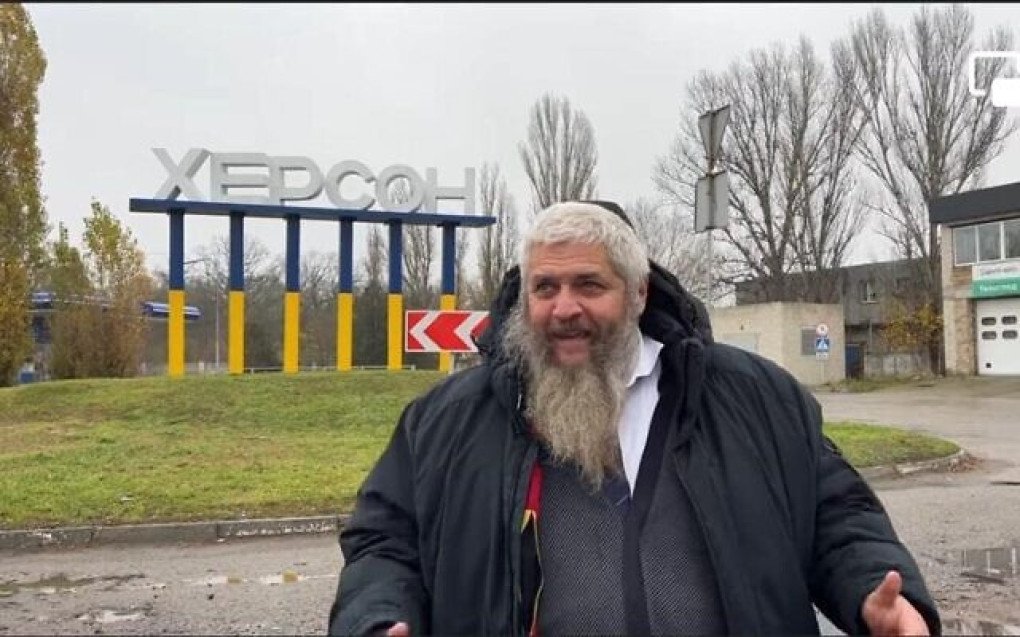
In 1993, Azman started working for “Chabad’s Children of Chernobyl” organization, which helped treat children who suffered from the Chornobyl disaster. He started visiting Kyiv and eventually decided to move there completely.
Amzan says that he is helping Ukraine because it is fighting for a just cause.
“God gave Russia a chance to get back on the right path after the fall of communism, but unfortunately, it chose to follow Stalin’s path,” the Rabbi said.
Amzan stated he saw all the horrors of war with his own eyes and was not far from Irpin and Bucha when Russia’s full-scale invasion started on February 24, 2022.
“We were under fire, many thousands of people were evacuated through us at the beginning of the war, women, children, and elderly people. It was done with great risk. I had small grandchildren with me, we did not know how to evacuate them. It was dangerous to move on the roads then because the Russians shot at all moving cars,” the Rabbi recalled.
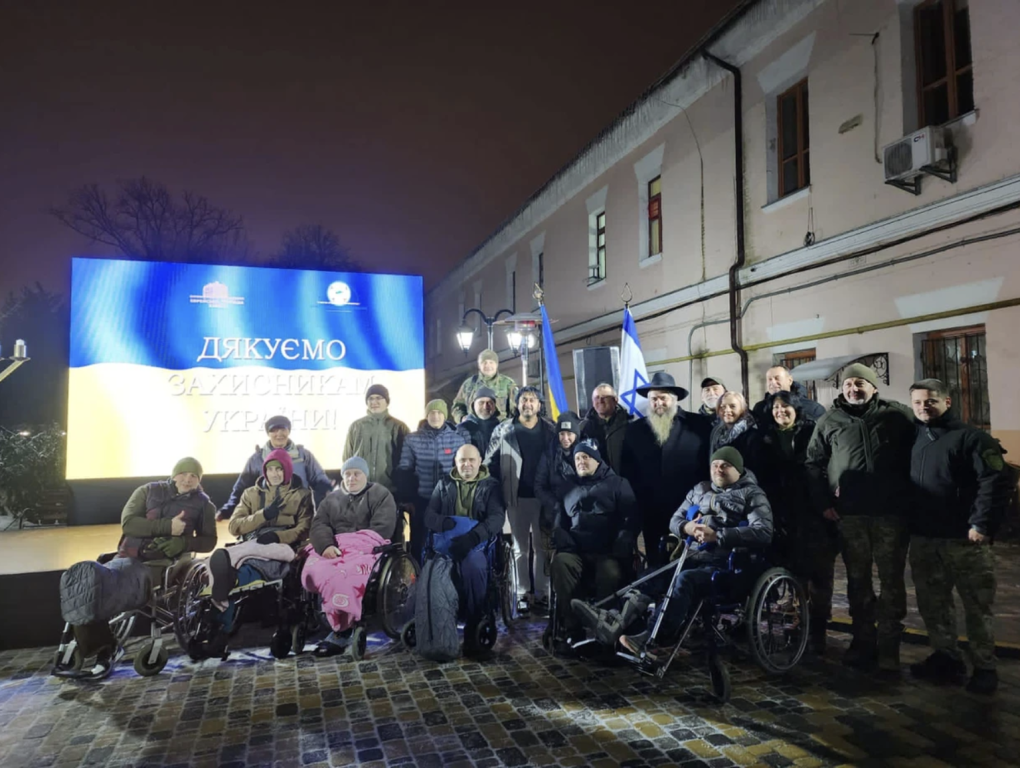
Moshe Reuven Azman, along with the Brodsky Synagogue in Kyiv continues helping refugees to this day. They have their own trucks and ambulances. Last summer they installed water purification equipment in many cities in Ukraine and atmospheric water generators.
Amzan said although his humanitarian mission has specific projects helping Jewish schools, kindergartens, and synagogues, they help everyone.
“We cannot give something to one person and not give it to another. We help all Ukrainians. All, of course. How could it be otherwise?”
Chaplain Makarii, Priest of the Orthodox Church of Ukraine
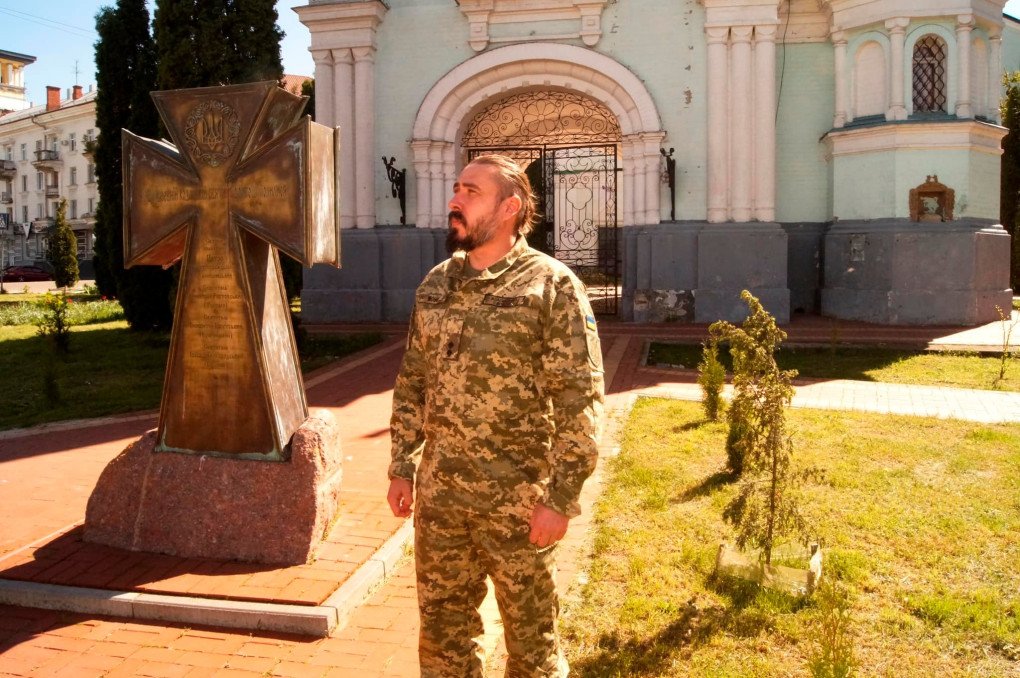
Priest Makarii Diadius, from Lutsk, became a military chaplain in 2014. His role extended beyond spiritual support—he also helped retrieve the wounded and dead from the front lines. Chaplain Makarii was actively involved in the battles for Debaltseve, where Ukrainian forces faced a massive Russian offensive.
In July 2014, Russian hybrid forces launched an attack on Debaltseve, a strategically important city in the Donetsk region. As a major railway hub on the main highway connecting the occupied cities of Luhansk and Donetsk, Debaltseve was crucial. The battle there was pivotal in halting Russia’s advance deeper into Ukrainian territory.
“I understand that it is not the chaplain’s function to fight, the chaplain’s function is to support. But, in my opinion, the chaplain should not be afraid to take up a weapon if needed,” he said.
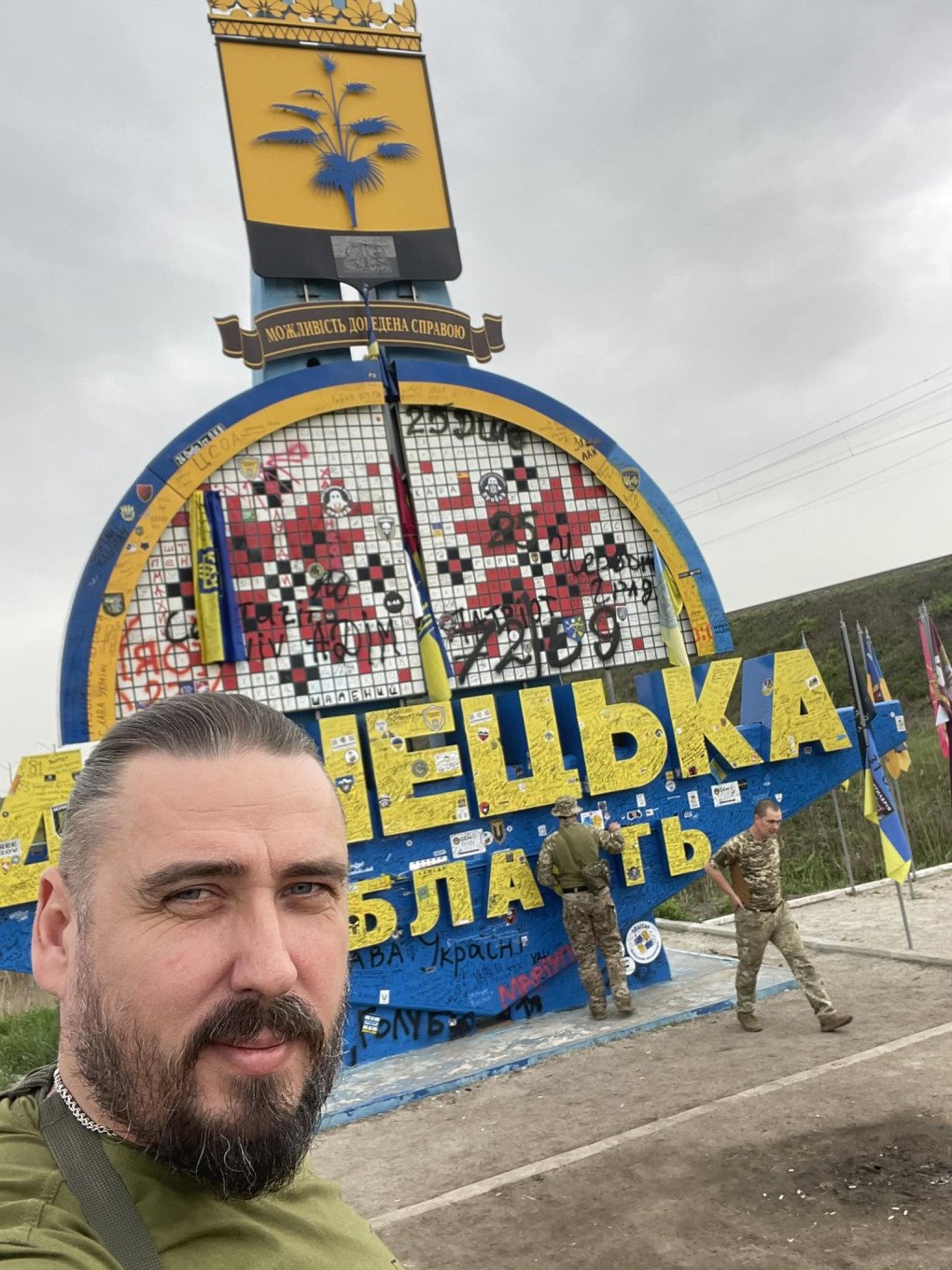
Later, Makarii left the military service and in 2017 started his service in the Church of Saint Nicholas the Wonderworker which was built in Volnovakha to commemorate the 18 soldiers of the 51st Separate Mechanized Brigade who were brutally killed by the Russian forces near Volnovakha, in the village of Blahodatne.
In addition to the chapel, a bell tower, a humanitarian center, and a memorial square for the soldiers of the 51st OMBr was built on the territory of the temple.
On March 12, 2022, the abbot of the church, Makarii Diadius, reported that the church was destroyed by a Russian attack.
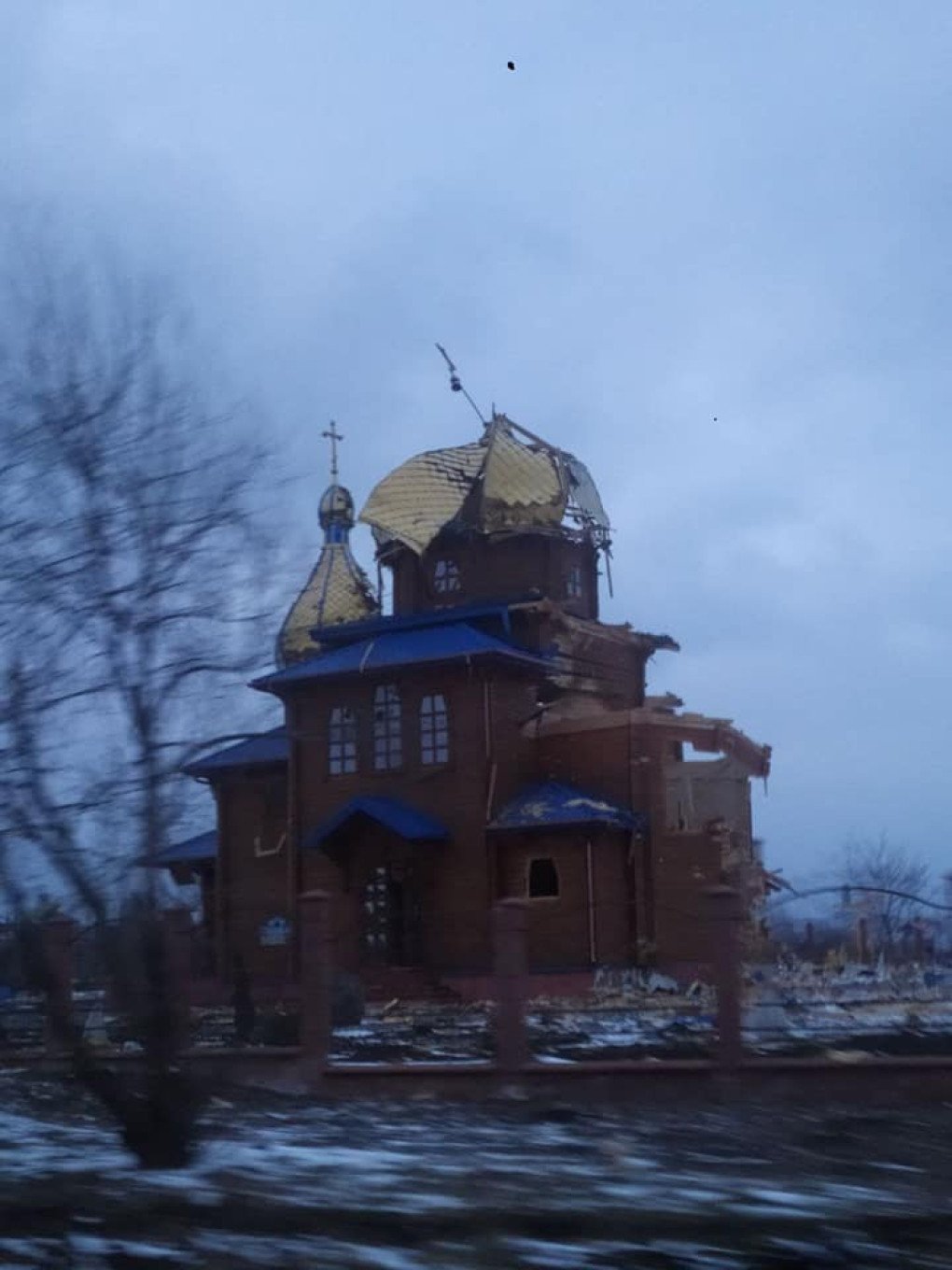
“The pain in the chest tears the heart, fills with anger, a thirst to destroy the enemy with bare hands. I ask God for a sober mind and a firm hand. These Muscovites wounded my heart, I will forgive them when I sing them to rest,” he wrote on Facebook.
At the beginning of the full-scale invasion, Chaplain Makarii returned to the army and headed an intelligence unit.
“So I became acting commander of the reconnaissance platoon. Subsequently, was promoted to junior sergeant, then junior lieutenant, and became a full-fledged commander,” he said.
“We evacuated people from Volnovakha, Vuhledar, and Staromlynivka. There was a lot of work, very dangerous. Was wounded on April 3. Got ambushed. But we still did our job, learned the enemy’s motives and their number.”
In 2023 Chaplain Makarii returned to chaplain service, where he continues to help and spiritually support fighters at the front.
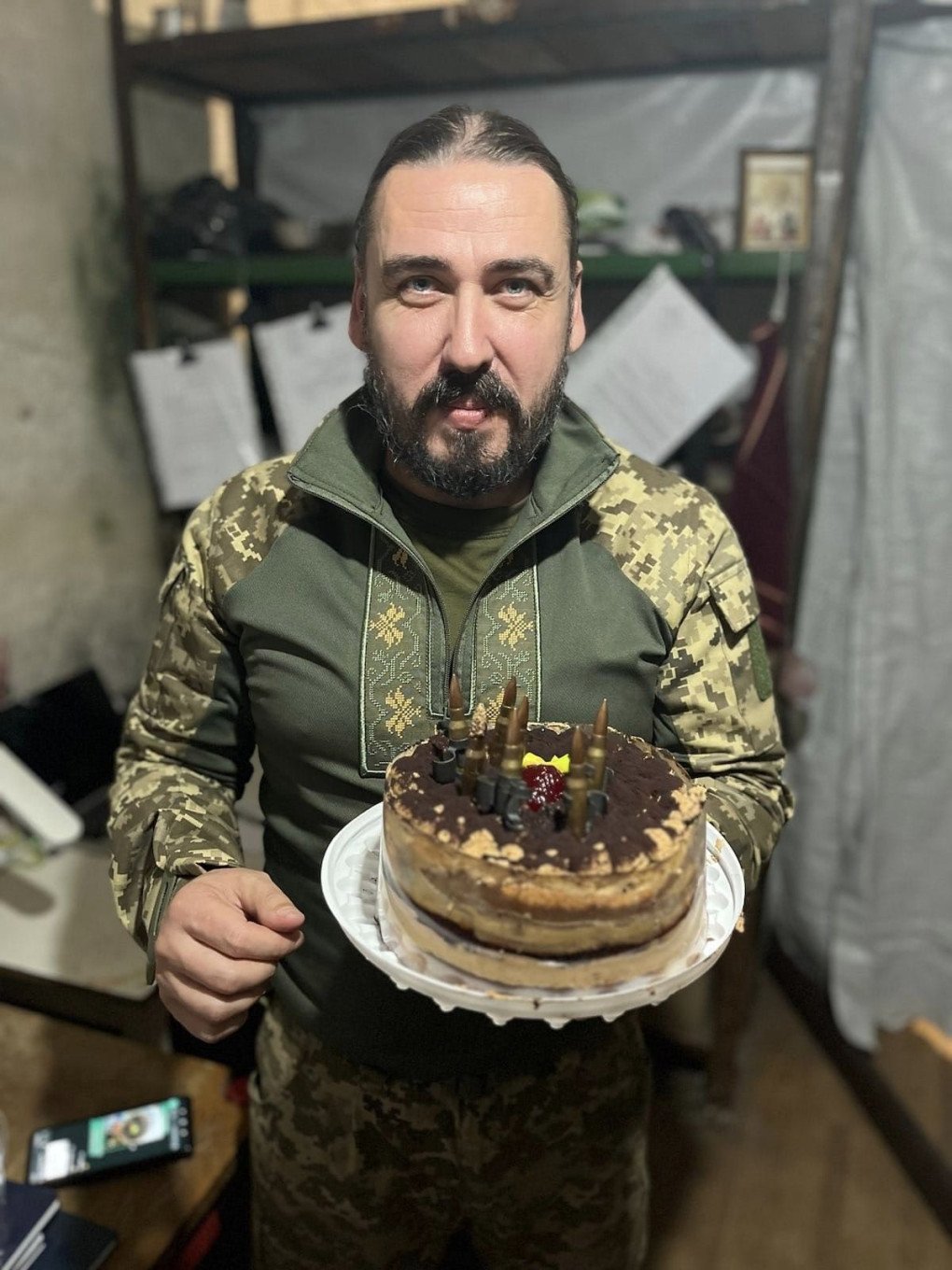
In Russia’s war on Ukraine, many spiritual leaders have stepped far beyond their traditional roles. From combat to humanitarian missions, these leaders are deeply committed to their country, blending faith with action. Figures like Said Ismagilov, who moved from spiritual guidance to frontline service; Moshe Azman, who combines humanitarian aid with his religious duties; and Chaplain Makarii, who balances combat and spiritual care, show the powerful role of faith during war.
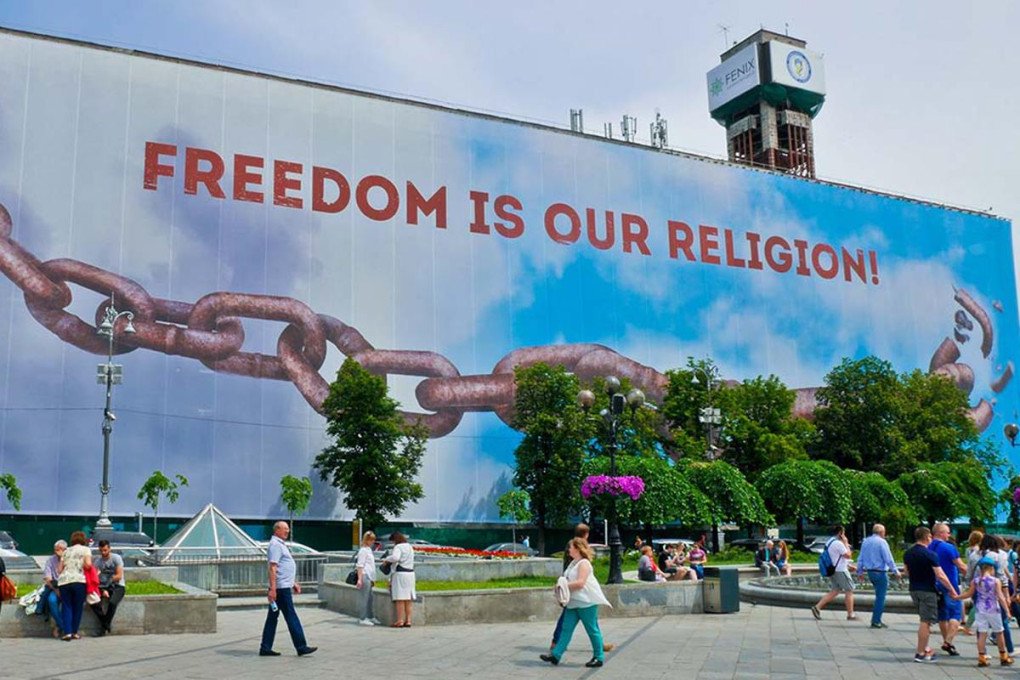
-f88628fa403b11af0b72ec7b062ce954.jpeg)
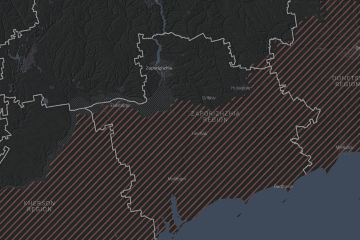
-29a1a43aba23f9bb779a1ac8b98d2121.jpeg)
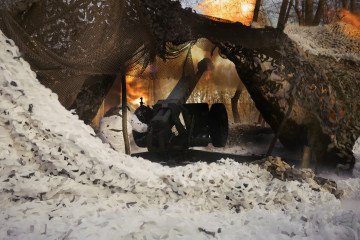
-0666d38c3abb51dc66be9ab82b971e20.jpg)
-35249c104385ca158fb62273fbd31476.jpg)


-554f0711f15a880af68b2550a739eee4.jpg)